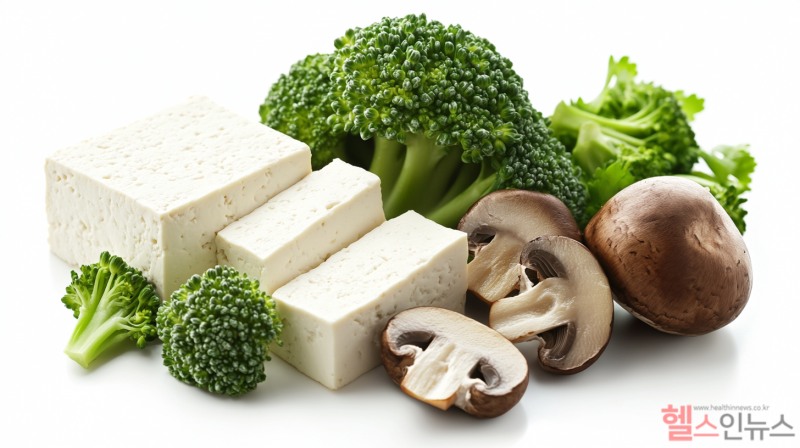Bone Broth (Sagol-guk)
Bone broth, a traditional Korean dish prepared by simmering beef leg bones, is packed with proteins and minerals vital for bone health. Extended cooking releases calcium from the bones, making it particularly effective for preventing osteoporosis and supporting fracture recovery. Notably, the clearer broth obtained after prolonged simmering is richer in bone-supporting nutrients than the initial opaque broth. At just 45 kcal per 100 ml, bone broth is a low-calorie choice suitable for regular consumption without concerns about weight gain.

Tofu, a cornerstone of Korean cuisine, serves as an exceptional source of plant-based protein with high bioavailability, making it highly beneficial for bone health. The essential amino acid lysine in tofu enhances calcium absorption and aids bone tissue regeneration. Tofu made from locally grown soybeans is especially rich in protein, helping to sustain muscle and bone health, particularly during winter when physical activity often decreases.
Shiitake Mushrooms
Shiitake mushrooms are a rich source of vitamin D, a crucial nutrient for improving bone density. Vitamin D promotes calcium absorption in the body, strengthening bones and lowering fracture risk. As a low-calorie food, shiitake mushrooms are an excellent option for those seeking to manage their weight while supporting bone health.
Broccoli is a nutrient-packed vegetable brimming with calcium and vitamin K, both essential for bone and joint health. Its calcium content is four times higher than that of spinach, making it an ideal choice for growing children and older adults alike. Vitamin K activates bone proteins, contributing to enhanced bone density and strength.
Beyond Diet: Lifestyle Tips for Stronger Bones
While a nutrient-rich diet is critical for bone health, regular exercise and healthy lifestyle habits are equally vital. Weight-bearing activities such as brisk walking or stair climbing stimulate bone growth and increase bone density. Strength training bolsters the muscles that support bones, reducing the risk of falls. Smoking and excessive alcohol consumption should be avoided, as they hinder calcium absorption and weaken bones. In winter, when icy surfaces heighten fall risks, wearing non-slip footwear and taking shorter, cautious steps can help prevent accidents.
By integrating a nutrient-dense diet with consistent exercise and mindful habits, older adults can significantly lower the risk of fractures and maintain an active, healthy lifestyle.
Haeun Oh, HEALTH IN NEWS TEAM
press@healthinnews.co.kr


